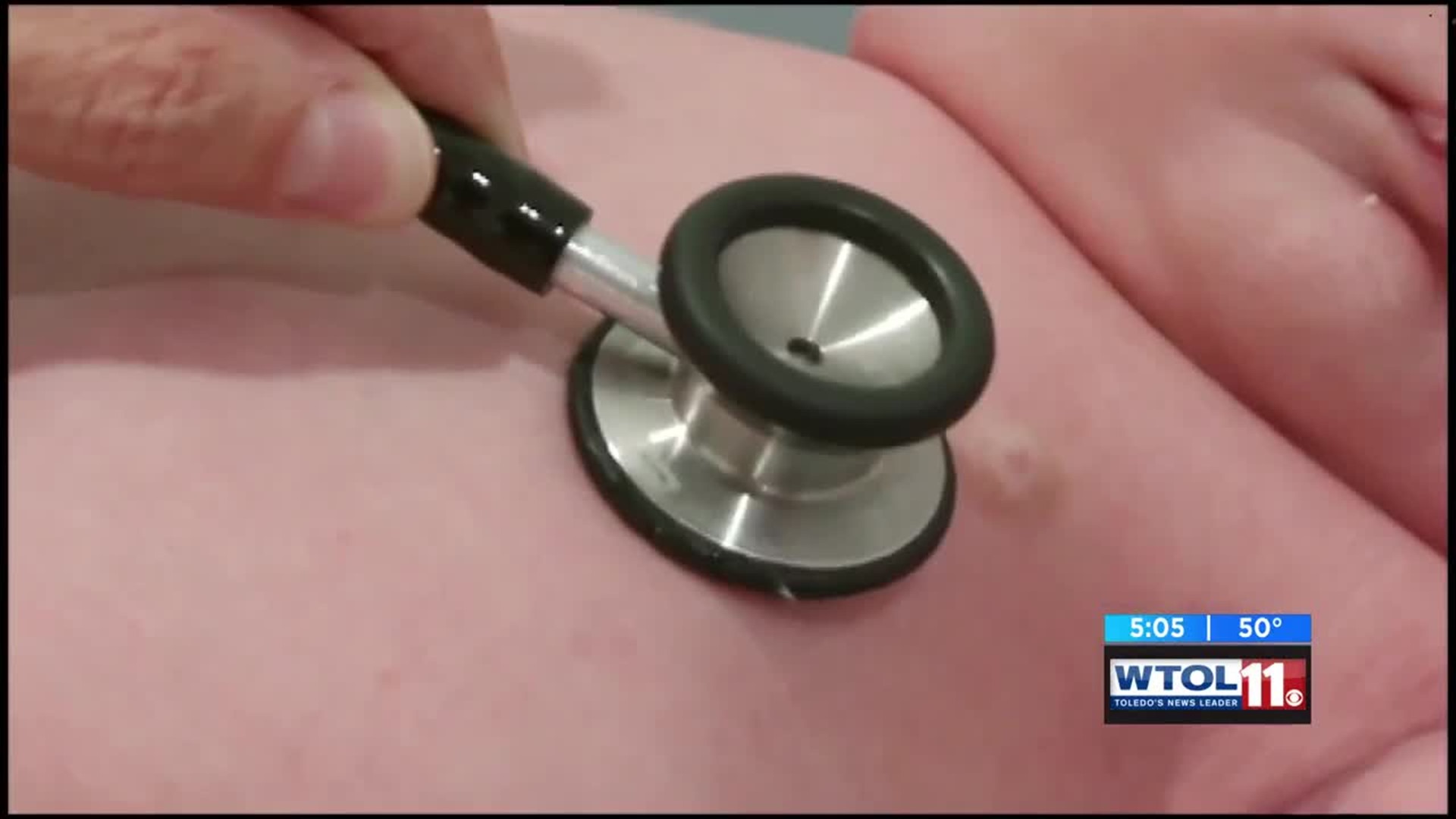TOLEDO (WTOL) - As cold and flu season ramps up, there’s another virus that you need to know about, especially if you have young children. It’s called RSV, Respiratory Syncytial Virus.
It was a scary few days for mother-of-three, Katherine Caudill. It started when she noticed her one-month-old-son Austin was fussier than normal. Then, in a matter of hours, his breathing changed and her mother’s intuition kicked in.
“You can see that his chest was starting to pull in. So Tuesday morning, I called the pediatrician and we went it,” recalled Caudill.
Turns out, baby Austin needed oxygen and was rushed to the hospital. The diagnosis was RSV.
“He’s just so small. His airways are too small,” explained Caudill.
So what is RSV?
The CDC said almost all children will be infected with RSV by their second birthday. It’s a respiratory virus that generally comes across like a common cold, which many children can get over without any complications.
But it can serious for babies under six months, especially those who are premature. Or children under two with chronic medical conditions.
“Causes respiratory wheezing, respiratory failure and sometimes these children end up in the ICU," Mercy Health Pediatrician, Dr. Rabia Akbar said.
The CDC said tests are generally not run to confirm cases of RSV, since for most older children and adults it’s seems like a bad cold. So it’s easy for older children to pass it to their baby brothers and sisters, which is what Katherine believes may have happened in her home.
“It’s a little scary. Honestly, I would rather it be pneumonia because there’s an antibiotic for it. A virus, he’s got to fight off on his own,” said Caudill.
So what can you do to protect your family? The same thing you do to prevent any illness. Wash your hands, cough or sneeze into your elbow, if you work in a healthcare or school setting you should change your clothes when you get home. If you’re sick, stay away from newborns or children with chronic medical conditions. Also, avoid confined spaces.
“An airplane or movie theater, because it’s a smaller place and more easily contracted,” said Dr. Akbar.
Dr. Akbar said the virus can stick around on surfaces for weeks and children can pass it through urine and stools, weeks after the infection passes. Which makes handwashing so important, as the same child can get RSV again.
Caudill said the fight to keep Austin healthy continues when they leave the PICU. A Go Fund Me has been started for the Caudill family, as they’ve had to miss a lot of work and anticipate hefty bills.
“All his bedding has to be washed, we’re not using any bottles or anything we used before. No pacificiers that we used before. Everything is going to be new,” said Caudill.
Caudill added that she’s just glad she trusted her gut and got Austin the help he needed.
“He’s a fighter. He’s a strong, little one.”
So how do you know when it’s more than just a cough? Dr. Akbar said if there’s a fever with the cough, take your child to the doctor. Also go to the doctor if you hear wheezing and your baby’s chest is retracting.
You can find more information about RSV here.
Join our Family Focus: Surviving Family Facebook Group and interact with other parents about the issues you care about here.

